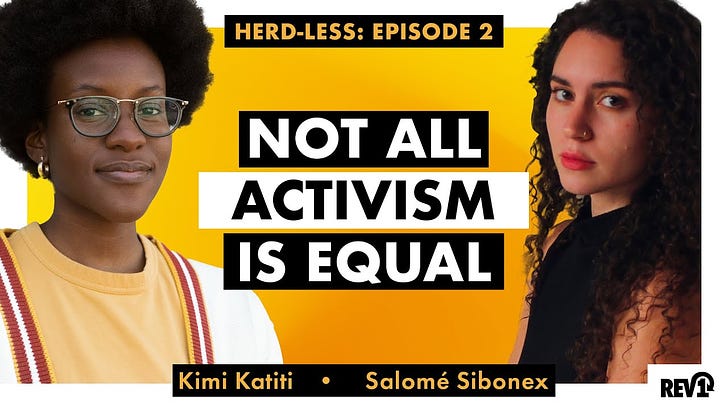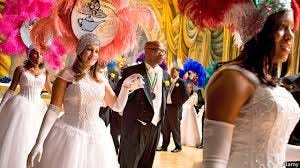[Introduction: This essay is inspired by a reader comment on I Love Me Some Him. What does it mean to be bourgeoise? What are the tell tale signs?]
Before Our Kind of People: Inside America’s Black Upper Class, there was E. Franklin Frazier’s Black Bourgeoisie (1955). Note well the year, 1955. Before the Civil Rights Movement of the 1960s, there were black middle-class and upper-class people. Educators have failed to teach about the nuance and complexity of black American life before the Civil Rights Act of 1964, the Voting Rights Act of 1965, and the Housing Rights Act of 1968. Why would schools and institutions ignore and overlook the triumphant black middle-class before the Modern Era?
One reader expressed frustration about the focus on black poverty as the Black American story. I could not agree more.
Howard Professor Frazier knew there was more to black life than gloom, doom and despair. He could look out his office window and see other faculty and students who were as invested in the American Dream as they come. Maybe, activists did not dig Frazier’s findings. Frazier discerned a middle-class people who were traditional and conservative. These are the kind of values and attitudes I remember from my childhood in Hickory Hill back in Chesterfield County, Virginia. One strove to be a lawyer, a pastor, a real estate investor, a store owner, a funeral home director, a barber shop proprietor. No one ideologized gang life and street scholars like Tupac Shakur. Moms and Aunts looked up to a sister attending college in New York City, a brother-in-law owning an apartment building in Queens, another brother-in-law who owned sixteen properties mortgage-free, men who built their own red brick homes, ancestors on the wall of the AME church.
We were traditional people. The Black Bourgeoisie were conservative people invested in striving. To be expected, Wikipedia has difficulty celebrating the black bourgeoise during a time of Jim Crow. One reads about the critical take of Frazier on the Black Bourgeoisie: “Frazier's Black Bourgeoisie, the 1957 English translation of a work first published in French in 1955, was a critical examination of the adoption by middle-class African Americans of a subservient conservatism. His book received "mixed reviews and harsh criticism from the black middle and professional class. Yet Frazier stood solidly by his argument that the black middle class was marked by conspicuous consumption, wish fulfillment, and a world of make-believe.”
Conspicuous consumption? Wish Fulfillment? A world of make-believe?
=========
I first came across the word Bourgeoisie in college at the University of Virginia (UVA). There were a group of upper-class black students from Washington, D.C. who had everything to my small-town eyes — grace, sophistication, cars, influential parents, Alpha Phi Alpha for life. More often than not, they were very fair-skinned and could pass for Hispanic had we been in San Diego. (It is not uncommon for strangers to start speaking Spanish to my wife and mother-in-law on the street. Mistaken racial identity.)
Conspicuous consumption? We were all students, so I was not aware of conspicuous consumption as a feature.
Wish fulfillment? Well, yeah. We all wanted to attend law school and medical school. Standard middle-class aspirations, regardless of race.
A world of make-believe? Well, I never joined a fraternity, black or otherwise. I was never in Jack and Jill. I couldn’t really comment on what was going on in the intimate lives of my bourgeoisie classmates. And yet it felt right when some referred to my well-off classmates from D.C as bourgeoisie. They were rich by black standards, not wealthy by white standards. In fact, I recall a conversation with a bougie female classmate from D.C. She was related by blood to all of the other bougie black kids. We were talking about the black upper-class and she was quite clear — the black rich did not have money like the white rich. The doctor parent of a bougie classmate might have a comfortable Tutor home in Northwest D.C. and a second home at Martha’s Vineyard. But no parent of a black bourgie classmate owned the Washington Post or the Washington Redskins.
In law school, nearly all black students were bougie if we define bougie as a state of mind. Did one desire to work at a Big Deal law firm in Manhattan? One was bougie. Did one claim a grandfather who was the largest property owner in the state of New Jersey? One was bougie. Was one’s father a name partner in the largest black law firm in Michigan? One was bougie, especially if one was Harvard College, Harvard Law School (I see you/smile). Did one take Jack and Jill for granted as a legacy inheritance? Compared to little old me, one was bougie. Did one bank on connections of a Dad who was a Virginia judge, family ties to a U.S. Senator, and knowing Lt. Governor Douglas Wilder on a first-hand basis? Yes, one would be bougie.
Who was not bougie at Harvard Law School? Three classes of students come to mind. First, there was a guy who grew up in a public housing project. He lived on my dorm floor and drove a taxi cab at night to pay for law school. He was not bougie. In fact, he seemed angry and bitter all the time. Second, there was the guy who flunked out of law school and was last seen bagging groceries at at local grocery store. He was not bougie. Finally, there were those who passed for white. I kid you not, dear readers, but the connections in law school were mind boggling. Remember the bitter guy from the public housing project? His cousin was passing for white. She disdained any hint of being black bourgeoisie.
=========
In my life today, I realize life is very short. I don’t give much thought to whether one is bougie or not. Maybe, I am like a fish in water. I am so surrounded by middle-class and upper-middle class things that I don’t recognize the tell tale signs. I wear Brooks Brothers polo shirts because I like the quality. Why did I start wearing Brooks Brothers shirts? When I was in law school, I discovered that my hero, entrepreneur and Harvard Law School graduate Reginald Lewis, wore Brooks Brothers shirts. I wanted to be like Lewis, so I stocked up on Brooks Brothers shirts. Want to know why I joined the Harvard Club of New York? Because Lewis joined the Club and made spectacular business deals at the Club. Once again, I wanted to be like my idol. As another sign of how small the world is, Lewis’ former law partner was my wife’s great uncle who performed our wedding ceremony.
Degrees of separation from Reginald Lewis.
Did a youthful desire to emulate Lewis render me bougie for life? It has been a good life. “We have been married 33 years minus a day,” my wife just said to me. I am surrounded by strong women from Yale. I have dress button-down blue shirts in my closet. I have UVA, Harvard and Yale hats on my head nearly every day. I have the obligatory UVA and Harvard Law School license plates.
But am I bougie? Do I pass the Turing test for being bourgeoisie?
I am going to take the opposite side of this proposition and argue I am not bougie, despite outward appearances. Consider my arguments for why I am not bougie:
I have no desire for fancy cars or second homes in Sag Harbor. Give me a good book instead, and a great Star Trek marathon series!
I have zero imagination when it comes to conspicuous consumption in clothing. I have my stock of polo shirts and dress shirts. I’m good.
I have not pledged any fraternity. I am not a joiner. I know someone whose life ambition is to become a member of the Boule. Huh? I don’t get it.
I simply have no desire to impress others at parties. People, it was such a strain for me to make small talk in New Haven last week. I did it so that the young generation knew Dad was there for support. That’s what Dads are for.
If I am in the same room as a billionaire, I don’t feel anything. There are social people who would be energized to know ——- or that ——- knows my name. I would rather be in a room with a young, non-conformer writer who has promise.
The Burbank Happening and Other Signs of Intelligent Life
·For this essay, I have to turn on my race consciousness switch. Switch turned on. I cruised into Burbank around 7:00 p.m. Actually, I arrived at 7:00 p.m. on the dot which was quite cool. The traffic jams were brutal getting out of San Diego, crossing through Orange County, and slow driving through downtown Los Angles. I left home at around 3:30 p.m. an…
Bougie people live to be in the presence of the rich and famous. Not so much me.
Conclusion: I am glad I wrote this essay tonight. Sure, I have the trappings of a bougie man on the outside. And that’s fun to play around with. I do enjoy a good laugh about these matters. But I am at the age where I am pretty much set in my ways. To be bougie or not to be bougie — that die has been cast in my life.
To Be Bougie or Not






I like your list. That’s my comfort zone, and my husband’s as well. We have a good life, and we have friends and acquaintances from many different status. We are definitely middle class, but we have friends (my husband has school friends) who would be considered upper class, and are wealthy. Good for them.